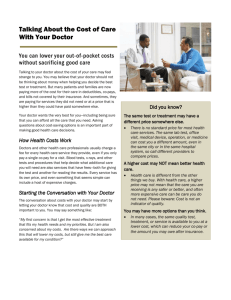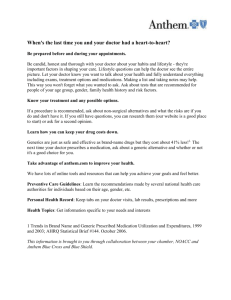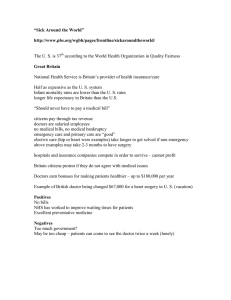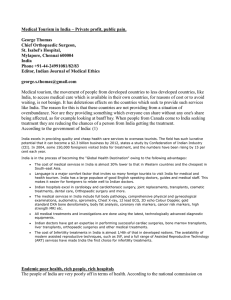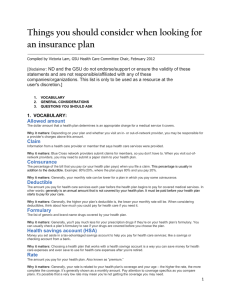Getting Smarter About Health Care: Three Steps You Can Take
advertisement
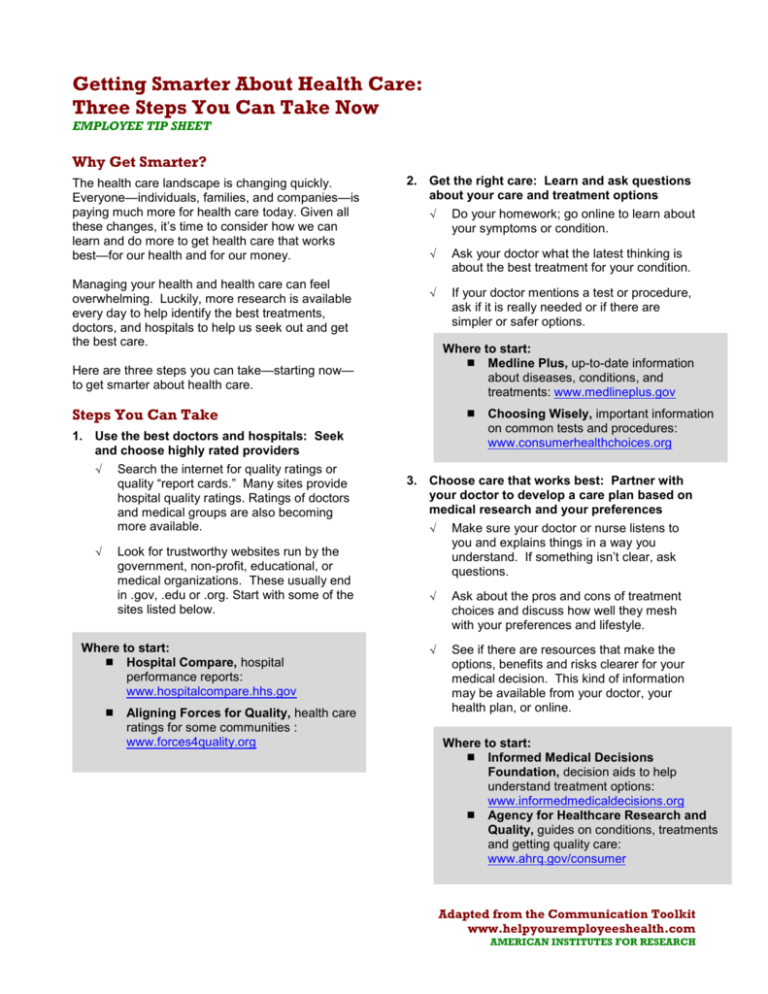
Getting Smarter About Health Care: Three Steps You Can Take Now EMPLOYEE TIP SHEET Why Get Smarter? The health care landscape is changing quickly. Everyone—individuals, families, and companies—is paying much more for health care today. Given all these changes, it’s time to consider how we can learn and do more to get health care that works best—for our health and for our money. Managing your health and health care can feel overwhelming. Luckily, more research is available every day to help identify the best treatments, doctors, and hospitals to help us seek out and get the best care. 2. Get the right care: Learn and ask questions about your care and treatment options √ Do your homework; go online to learn about your symptoms or condition. √ Ask your doctor what the latest thinking is about the best treatment for your condition. √ If your doctor mentions a test or procedure, ask if it is really needed or if there are simpler or safer options. Where to start: Medline Plus, up-to-date information about diseases, conditions, and treatments: www.medlineplus.gov Here are three steps you can take—starting now— to get smarter about health care. Steps You Can Take 1. Use the best doctors and hospitals: Seek and choose highly rated providers √ Search the internet for quality ratings or quality “report cards.” Many sites provide hospital quality ratings. Ratings of doctors and medical groups are also becoming more available. √ Look for trustworthy websites run by the government, non-profit, educational, or medical organizations. These usually end in .gov, .edu or .org. Start with some of the sites listed below. Where to start: Hospital Compare, hospital performance reports: www.hospitalcompare.hhs.gov Aligning Forces for Quality, health care ratings for some communities : www.forces4quality.org Choosing Wisely, important information on common tests and procedures: www.consumerhealthchoices.org 3. Choose care that works best: Partner with your doctor to develop a care plan based on medical research and your preferences √ Make sure your doctor or nurse listens to you and explains things in a way you understand. If something isn’t clear, ask questions. √ Ask about the pros and cons of treatment choices and discuss how well they mesh with your preferences and lifestyle. √ See if there are resources that make the options, benefits and risks clearer for your medical decision. This kind of information may be available from your doctor, your health plan, or online. Where to start: Informed Medical Decisions Foundation, decision aids to help understand treatment options: www.informedmedicaldecisions.org Agency for Healthcare Research and Quality, guides on conditions, treatments and getting quality care: www.ahrq.gov/consumer Adapted from the Communication Toolkit www.helpyouremployeeshealth.com AMERICAN INSTITUTES FOR RESEARCH

